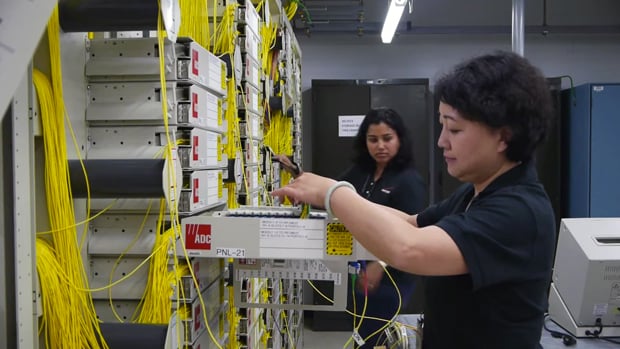Verizon Tests Big Ol' Fat Pipe 10 Gigabit Optical Fiber Internet Service
You think Google Fiber’s 1Gbps speeds are fast? That’s mere child’s play, my friends! Or how about Comcast’s 2Gbps Gigabit Pro? Fuhgetaboutit! The folks at Verizon are chompin’ at the bit to deliver Internet speeds at least five times faster than what’s possible with Gigabit Pro.
Verizon announced today that it has completed successful trials of a high-speed fiber-to-the-premises network that offers symmetrical upload/download speeds at an eye-sizzling 10 Gbps. The telecommunications company is using new optical line terminal (OLT) technology, which is capable of generating four wavelengths (colors) of light, each with the capacity to deliver 10Gbps downloads and 2.5Gbps uploads.

But that’s not all, Verizon says that future revisions of its tech will be capable of 10G/10G, while also boasting incredible fault tolerance -- in simulations -- using next-generation passive optical network (NG-PON2) signals. “In [the tests], a fault in the central office equipment was simulated and the customer’s ONT autonomously tuned to another wavelength, restoring its own 10G service in seconds,” stated Verizon in a press release. “This new feature of NG-PON2 has critical implications for improved customer reliability and performance.”
What’s also incredibly remarkable about Verizon’s field tests is that the fiber network is highly scalable. How scalable you ask? Well, Verizon says that the already blazing fast 10Gbps speeds can “grow to 40-80 Gbps as the market demands.” My eyes are tearing up just thinking about those insane data speeds and the type of equipment that will be required for the end user to take full advantage of those speeds.
Verizon says that it is embarking on this mission to ratchet up fiber speeds due to the impending explosion of 4K content, along with the proliferation of the “Internet of Things” market. There will be roughly 25 billion Internet-connected devices globally by the start of the next decade, so Verizon is hoping to step in with “higher symmetrical speeds and lower latency for consumers.”
With all this talk of 10Gbps, and even 80Gbps speeds, I can only sit in sulk as I access the internet with my “mere” 30Mbps connection.

